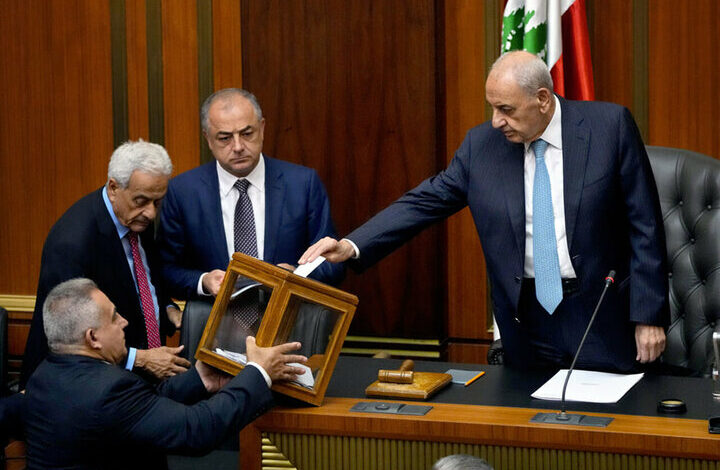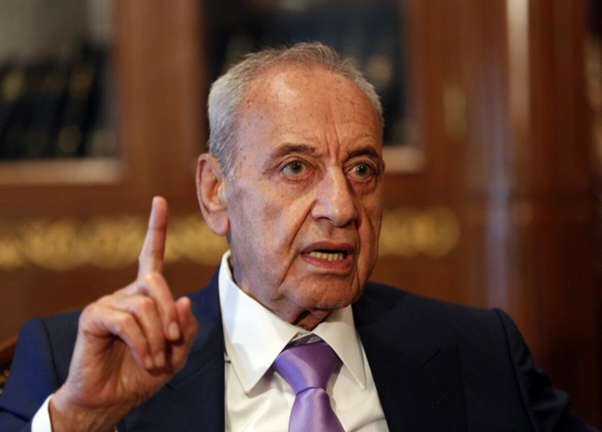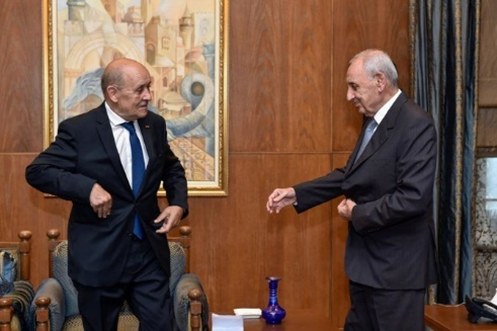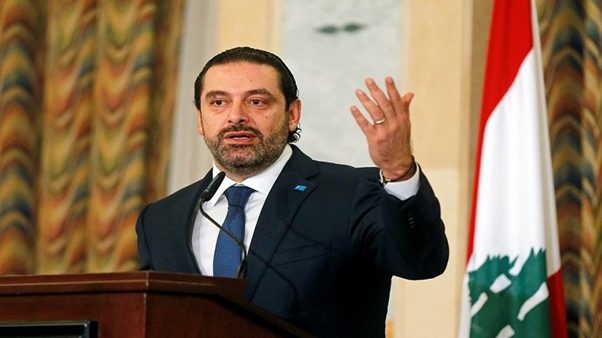The multi-layered dimensions of the political crisis in Lebanon

| Several countries are consulting to solve Lebanon's political problem, and in the summer of 1402, members of a five-party committee consisting of Egypt, Qatar, Saudi Arabia, France, and the United States held meetings with the Speaker of the Lebanese Parliament. |
Mehr News Agency, Intergroup International: A long time has passed since the end of the presidency of the former president of Lebanon, Michel Aoun. His mission ended on October 31, 2022 AD, but since then, no agreement has been reached to replace Aoun. As a result, Lebanon has practically reached a dead end and the inability to form a government and elect a president in Lebanon continued in 1402 and this problem has affected all aspects of the life of the people of this country.
Lebanon has been in an excruciating political and economic crisis since 2019 and has been ruled by a temporary cabinet for a long time and has practically no president. Several meetings of the Lebanese Parliament in 1402 to elect a new president remained inconclusive, and the three main political groups of this country, namely Christians, Shiite Muslims, and Sunni Muslims, did not reach an agreement to elect a new president.
Lebanese legislators failed to elect a new president 12 times. The US has tried to link the defeat in the Lebanese Parliament to the influence of the Islamic Republic of Iran on the decisions of Hezbollah and Lebanese Shiites. But clear evidence showed that in 1402, in the parliament meetings, the difference on the Christian front, as well as the difference in serious views between the Sunnis, played an important role in the failure of the negotiations, and the American claims were not true. Lebanon’s position in the region is of vital importance from a political and security point of view, and in addition to its geopolitical importance, its background and intellectual and cultural credibility are noteworthy. But today’s Lebanon is plagued by major problems and dilemmas such as political deadlock and economic crisis. As a result, it is very important for the new president to interact with the prime minister and his cabinet and guide the country’s domestic and foreign policy based on attention to independence, stability and unity.
Initiative of the 5-way committee, persuasion or competition?
Several countries are consulting to solve the political problem of Lebanon, and in the summer of 1402, the members of a five-way committee consisting of the ambassadors of Egypt, Qatar, Saudi Arabia, France and the United States held meetings held with the Speaker of the Lebanese Parliament in order to agree on the presidential candidate.
One of the most important meetings of the 5-way committee was held in New York, and Joe Biden’s administration was looking for a diplomatic victory to end Lebanon’s political differences in its own name. But the said meeting also ended in failure.
Later it became clear that during the meeting in New York, America supported the views of Qatar and Saudi Arabia and France were also on a common front. In this way, the committee that was supposed to act as a diplomatic mediator; to remove the existing obstacles, in the field of action, it became a factor of aggravating disputes. It is worth noting that America’s policy on Lebanon has revealed its insidious dimensions, and Barbara Leaf, the American representative in this five-party meeting, emphasized that because of the lack of agreement, Washington does not want to continue its aid to the Lebanese army. /p>
Lebanese newspapers in 1402 repeatedly pointed to America’s bad intentions regarding Beirut’s political process and wrote: “What Washington is looking for is to break the political deadlock.” It is not in Lebanon, but it seeks to ensure that the management of Lebanon’s case is not in the hands of France and that zero to one hundred of it is in the hands of American diplomats. Al-Akhbar newspaper of Lebanon has also mentioned that during 1402, the Washington authorities sought to attract Qatari diplomats against the French-Saudi front and to advance a plan in Lebanon that goes against the political and security demands of Paris and It should be Riyadh”.
The plot of the Americans to influence the Lebanese agreement process has caused France to fail to implement its views and openly tell the Beirut authorities that the only possible way to transition from the situation There is an agreement between the Lebanese political groups themselves and they should not expect anything from others.
In the summer of 1402, the French government entered the scene many times in order to accelerate the resolution of the political problem in Lebanon. The continuous meeting of French diplomats with Nabih Berri, the powerful speaker of the Lebanese parliament and other political leaders, did not reach clear results, and consultations with other countries such as Qatar and Saudi Arabia did not help the said process either.
In December 1402, Nizar Al-Aloula, adviser to the court of the Kingdom of Saudi Arabia, and Walid Bukhari, the ambassador of this country in Lebanon, accompanied by French diplomats, with Sunni representatives in the Lebanese parliament, including Wael Abu Faour and Fouad Makhzoumi met and informed them that Paris and Riyadh share a common point of view. They emphasized that the new president of Lebanon should not be a challenge for one of the three political parties of the parliament, but should be a representative of all Lebanese political parties and currents and be accepted by everyone.
Franjieh; A politician who does not want to pay ransom
Despite the support of several Lebanese political currents for Franjieh, the final agreement has not yet been reached. Suleiman Faranjieh’s previous political statements and positions have shown that he has a high ability to interact with all political groups and also gives a special price for the political independence of his country. He has already said that he is not willing to beg for the presidency in any way. The meaning and implication of this intelligent statement by Farniyeh is that he is not a person who pays ransom to reach a position and authority and does not sacrifice political and moral principles to deal with groups that seek to obtain financial rents from political power.
The continuation of the stalemate in Lebanon’s political environment and the failure to elect a president, parallel to the insistence of political parties and currents on their positions and candidates, the process of electing a new president into a winding path and crossing this bottleneck requires an agreement or a change in the balance of internal forces. In 1402, Hezbollah and the Amal movement of Lebanon announced their support for Suleiman Franjieh, the leader of the al-Murda movement, as a presidential candidate, but the opposite faction continued to support Jihad Azour. At the same time, some other Lebanese political currents are looking for the third option, specifically General Joseph Aoun, the commander of the army. But there is no consensus in this field either.
Uncertainty about Saad Hariri’s decision
In addition to the deadlock and obstruction regarding the election of the president, there are also significant problems in the political atmosphere of Lebanon regarding the post of prime minister. One of the political events of Lebanon in 1402 was the new statements of Saad Hariri, the former prime minister of this country.
In February, Hariri asked his supporters to start a march and pretend that they spontaneously want Hariri to return to the political scene. Supporters of the future movement claimed that, in addition to them, several top-ranking Lebanese clerics have insisted on Saad Hariri’s return to the world of politics as soon as possible. In the meantime, Al-Jarida newspaper in Kuwait, quoting some political activists of the future movement of Lebanon, announced that Abdul Latif Derian, the Sunni Mufti of Lebanon, directly asked Hariri to return to political activity in Beirut, but Hariri did not give a clear and decisive answer and his signals about To return or not to return is unclear.





